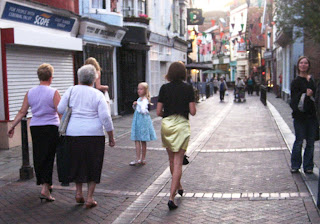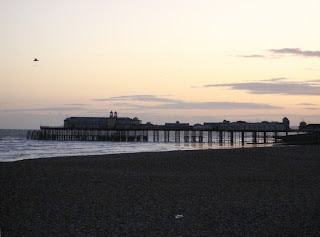I've certainly learned my lesson: you don't go trekking about India without the aid of an experienced travel planner. You need a car to meet you at the airport, you need a good driver who can make a judgement call on the spur of the moment (this last trip my driver did a U-turn as soon as he saw a truck stuck in an ancient gateway- we would have been waiting there for hours). You need the expert advice of someone who knows the best routes, the reliable flights and trains (an oxymoronic thought in itself), and has the inside information on hotels. That's why I headed down to Gurgaon to consult Mohan at Travelscope India before leaving on a planned circuit through Rajasthan, which is another story altogether. I'm always interested in who is going where and why, so sounded Mohan on what the latest industry trends were in light of the Mumbai massacre, the world economic collapse and Bird Flu, not to mention all the Nervous Nellie terror alerts that have temporarily diminished tourism in India. Mohan's answer was instantaneous: people are discovering the South, for a multitude of excellent reasons.
Of course economics figures prominently in all this. People just can't spend with such abandon as before, and the South is definitely cheaper. It's nowhere near as known as the North. Mohan called it underexplored, not as expensive as the north, yet fairly priced. The South doesn't yet have the luxury that characterises the Golden Triangle of Delhi-Agra-Jaipur, areas most first-time travelers see, already developed for tourism. Turns out there's much to recommend the four states to the south (Andhra Pradesh, Karnataka, Kerala and Tamil Nadu) besides cost.
You can discover cultural heritage 10 centuries old through a wealth of temple architecture and structures emblematic of colonial history. There's an engaging warmth to life in the South, Mohan said, complemented by year-round good weather. Kerala's exotic backwaters have eco-friendly lodges, and tea plantations are everywhere. In fact, the cuisine- signature dishes, spices, and tea are all renowned delicacies. Telicherry pepper, often called the best, comes from Kerala. I'm convinced- next trip I'll go South. Maybe I'll try out the Golden Chariot, a new express rail connection between Bangalore and Goa. And then I'll report back to you.
TRAVEL SCOPE (I) PVT. LTD.
118, Qutub Plaza, DLF Phase I
Gurgaon – 122002. NCR of Delhi.
Tel. : 91-124-4381801 Extn. : 204
Fax : 91-124-4381805
Website : www.travelscopeindia.com














